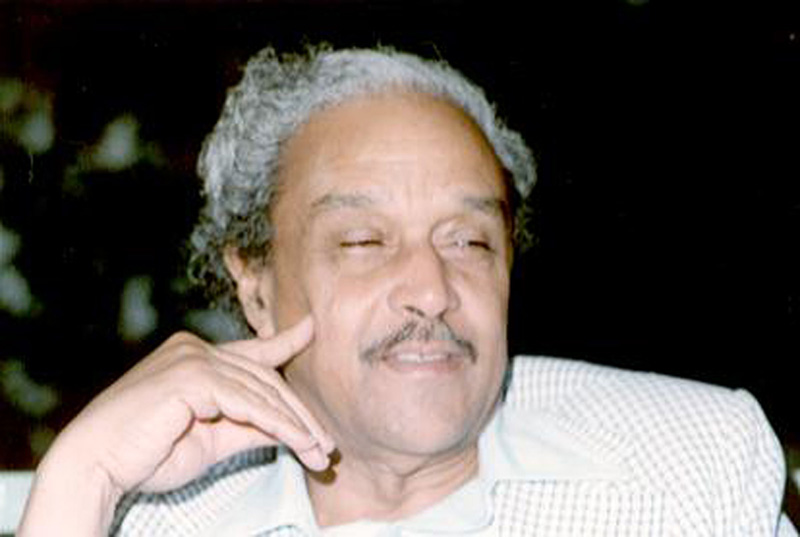Theodore Wilson Harris was born in New Amsterdam, British Guiana, and moved to the capital Georgetown after his father died in 1923. His mother married again, but his stepfather was lost, presumed drowned in the interior in 1929. These experiences were to become engraved indelibly in Harris’s consciousness for the rest of his life, particularly when coupled with his 17 years’ work as a government hydraulic surveyor through the rivers, rainforests and savannahs of Guyana. Those were haunting experiences from which his imagination and his writing drew infinite strength.
Sir Wilson attended Queen’s College, the country’s most prestigious secondary school for boys, and it was there that the first germ of an idea that he could be a writer entered his thoughts, when an English master, impressed by his class essays predicted, “Harris, one day you will be a novelist”. However, on leaving school, he trained as a surveyor. He married Cecily Carew in 1945, sister of Jan Carew who was also to be another foremost Guyanese writer. Harris was the father of E Nigel Harris, Chancellor of the University of Guyana and former Vice-Chancellor of the UWI; Denise Harris, a winner of the Guyana Prize for First Book of Fiction; Alexis and Michael Harris; all from his first marriage which ended in divorce. After relocating to England in 1959, he was remarried to Margaret Whitaker, a native of Edinburgh, Scotland, with whom he lived for 50 years until her death in 2010.
Harris was a novelist and short story writer, a poet, playwright, literary critic, essayist, and critical theorist. He was mostly known for the extraordinary innovation and breadth of vision, and the abstract complexity of his novels. Yet, he started his writing career as a poet, regularly publishing several poems and a few short stories in the newly established Kyk-Over-Al, edited by A J Seymour, in the 1940s. He was very prolific, and stood out as one of British Guiana’s foremost poets. His first collection was self published in 1954 – Eternity to Season ‒ containing poetry and a short play set in Canje, a location in which he once worked tracing the course of the river through extensive swamp lands, an experience on which he also drew for his novel, The Secret Ladder (1963).

